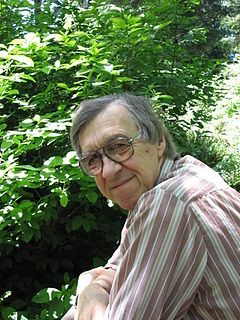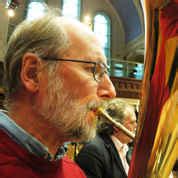A Quote by Charles Tart
In the end we can never be given knowledge by others; we can only be stimulated. We must develop our own knowledge.
Related Quotes
Surely knowledge of the natural world, knowledge of the human condition, knowledge of the nature and dynamics of society, knowledge of the past so that one may use it in experiencing the present and aspiring to the future--all of these, it would seem reasonable to suppose, are essential to an educated man. To these must be added another--knowledge of the products of our artistic heritage that mark the history of our esthetic wonder and delight.
First, my people must be taught the knowledge of self. Then and only then will they be able to under-stand others and that which surrounds them. Anyone who does not have a knowledge of self is considered a victim of either amnesia or unconsciousness and is not very competent. The lack of knowledge of self is a prevailing condition among my people here in America. Gaining the knowledge of self makes us unite into a great unity. Knowledge of self makes you take on the great virtue of learning.
No matter how vast your knowledge or how modest, it is your own mind that has to acquire it. It is only with your own knowledge that you can deal. It is only your own knowledge that you can claim to possess or ask others to consider. Your mind is your only judge of truth - and if others dissent from your verdict, reality is the court of final appeal. Nothing but a man's mind can perform that complex, delicate, crucial process of identification which is thinking. Nothing can direct the process but his own judgment. Nothing can direct his judgment but his moral integrity.
Our deepest calling is not to grow in our knowledge of God. It is to make disciples. Our knowledge will grow -- the Holy Spirit, Jesus promised, will guide us into all truth. But that's not our calling, it is His. Our calling is to prepare the world for Christ's return. The world is not ready yet. And so, we go about introducing a dying world to the Savior of Life. Anything we do toward our own growth must be toward that end.
At the heart of capitalism is the unification of knowledge and power. As Friedrich Hayek, the leader of the Austrian school of economics, put it, "To assume all the knowledge to be given to a single mind... is to disregard everything that is important and significant in the real world." Because knowledge is dispersed, power must be as well.
In knowledge of human affairs, we should never allow our minds to be enslaved by others by subjecting ourselves to their whims. We must maintain freedom of thought, and never accept anything of purely human authority into our heads. When we are presented with a diversity of opinions, we must choose, if we can; if we cannot, we must remain in doubt.
To achieve accurate knowledge of others, if such a thing were possible, we could only ever arrive at it through the slow and unsure recognition of our own initial optical inaccuracies. However, such knowledge is not possible: for, while our vision of others is being adjusted, they, who are not made of mere brute matter, are also changing; we think we have managed to see them more clearly, but they shift; and when we believe we have them fully in focus, it is merely our older images of them that we have clarified, but which are themselves already out of date.
Let us see that our knowledge of Christ be not a powerless, barren, unpractical knowledge: O that, in its passage from our understanding to our lips, it might powerfully melt, sweeten, and ravish our hearts! Remember, brethren, a holy calling never saved any man, without a holy heart; if our tongues only be sanctified, our whole man must be damned. We must be judged by the same gospel, and stand at the same bar, and be sentenced to the same terms, and dealt with as severely as any other men.
WISDOM IS dependent upon knowledge. Where there is complete ignorance there can be no wisdom, no knowledge of the right thing to do. Man’s knowledge is comparatively limited and so his wisdom must be small, unless he can connect his mind with a knowledge greater than his own and draw from it, by inspiration, the wisdom that his own limitations deny him. Only God knows all truth; therefore only God can have Real wisdom or know the right thing to do at all times, and man can receive wisdom from God. Wisdom is obtained by reading the mind of God.
Therefore only through education does one come to be dissatisfied with his own knowledge, and only through teaching others does one come to realize the uncomfortable inadequacy of his knowledge. Being dissatisfied with his own knowledge, one then realizes that the trouble lies with himself, and realizing the uncomfortable inadequacy of his knowledger.





































